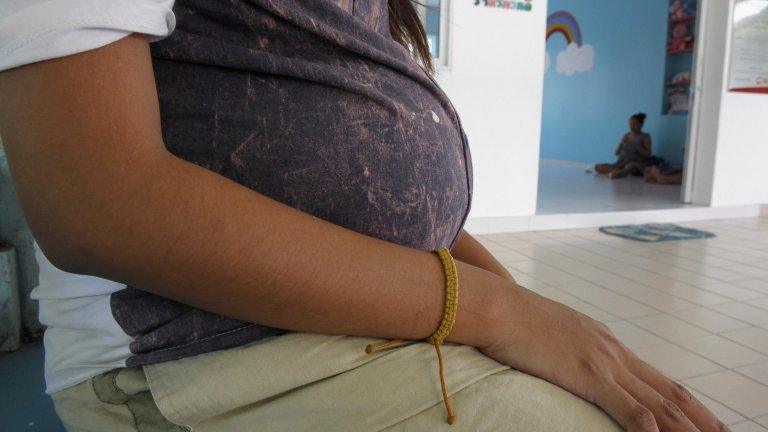Brazil election candidates stay silent on abortion issue
- Published
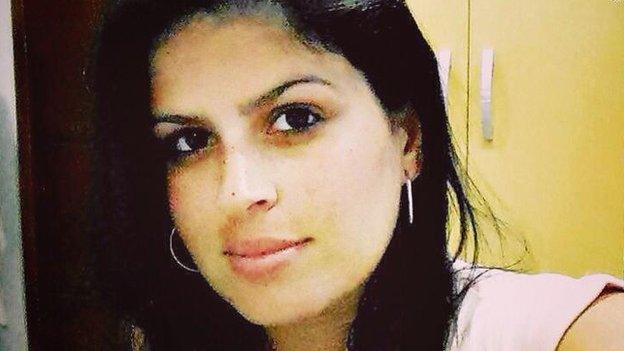
Jandira dos Santos Cruz's case shocked Brazil and triggered a debate about its abortion laws
Every other day, a woman dies in Brazil after having a clandestine abortion.
Two tragic cases in Rio have shed light on a dark reality most Brazilians would prefer to ignore - and which has largely stayed off the agenda in the current presidential campaign.
One of them is that of Jandira dos Santos Cruz, a 27-year-old divorced mother of two.
She disappeared after her ex-husband had dropped her off at a bus station in the west of Rio de Janeiro.
Backstreet operations
Her ex-husband said a woman in a white car had taken Jandira and two other women to a clinic at an undisclosed location. He waited for her, but she never came back.
She had paid $2,000 (£1,250) for a clandestine abortion.
Her last text message to him read: "They told me to hang up my phone. I am in a panic!"
Last week, DNA tests revealed that a charred body found in the boot of a car, its limbs and dental arch removed, was that of Ms Cruz.
Police believe she died while having the abortion and her body was mutilated to avoid identification.
Five suspects have been arrested.
Elizangela Barbosa, 32, also died after a botched abortion, her womb and intestine punctured.
She, too, had sought help at an illegal abortion clinic.
When it went wrong, unidentified persons dragged her out into the street, forced a car to stop and ordered its driver to take Ms Barbosa to hospital, but she was dead on arrival.
Risks
The shocking deaths have drawn attention to the huge risks hundreds of thousands of Brazilian women take in order to get an abortion.
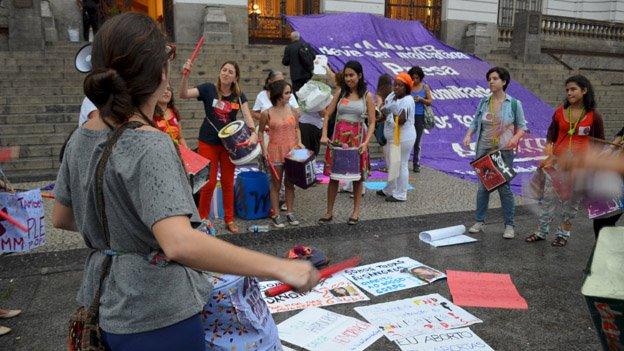
The cases of Jandira dos Santos Cruz and Elizangela Barbosa sparked protests against Brazil's abortion laws
Abortion can only be legally performed in Brazil if the pregnancy puts the life of the woman in danger, if the pregnancy is the result of a rape or when the foetus's brain cannot develop.
But according to Jefferson Drezett, director of the Legal Abortion Centre at Sao Paulo's Perola Byington State Hospital, the law has not deterred between 800,000 and 1.2 million women every year from seeking clandestine abortions.
"The law does not prevent abortion, it does not protect the foetus - its only result is making abortions unsafe," he says.
"It's an effective way of killing women."
A 2010 nationwide survey suggests as many as one in five women has had an abortion before the age of 40.
Human rights groups and medical associations have called for abortions to be legalised in more cases than the ones the law currently allows.
They argue it is a matter of public health and warn that the current rules pose a risk to women determined to get an abortion.
They point out that botched abortions are the fifth most common cause of death among mothers in Brazil.
Religious opposition
And yet a recent poll suggests 79% of Brazilians do not want to see the country's abortion laws change.
Analysts say many Brazilians espouse, at least publically, traditional Catholic values.
And the country boasts a growing evangelical movement, also opposed to a change in the abortion laws.
The death of Jandira dos Santos Cruz reflects the divided views on the topic.
Activists demanding the decriminalisation of abortion last week carried banners through downtown Rio reading "We are all Jandira".
Yet at her funeral, an evangelical pastor assured her family, also evangelical, that she would be forgiven for the "sin" she had committed.
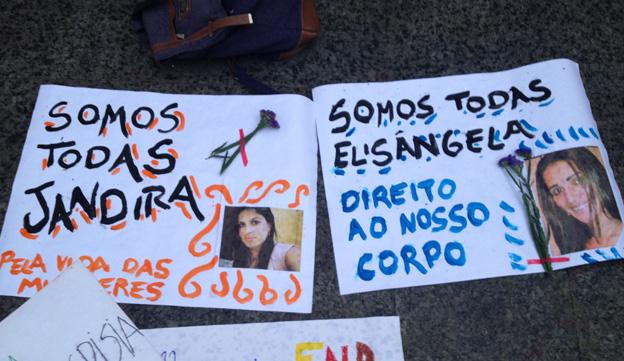
The fate of the two young women moved many women to speak out in favour of the decriminalisation of abortion
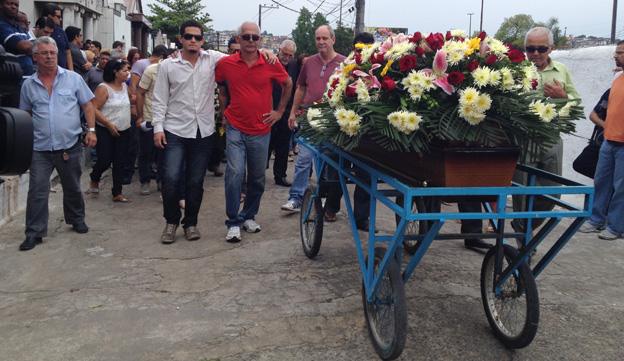
Jandira's family want those responsible for her death to be punished
Her sister Joyce demanded that those responsible for her death be brought to justice, but insisted Jandira's case should not be used to push for the decriminalisation of abortion.
"Many people have been criticising her and saying she deserved to die," she told the BBC.
"I'm against abortion too, but she paid the price. Now those who did this to her have to pay too."
Political taboo
The recent public debate about Brazil's abortion laws has not been reflected in the campaign for the presidential election on 5 October.
All three main presidential candidates have avoided the subject.
When questioned, they all said they opposed a change in the law.
Political scientist Ricardo Ismael argues that the topic is too sensitive and candidates steer clear of it in order to avoid alienating religious groups.
"It's taboo for the Catholic Church, it's taboo for the evangelical churches. So candidates don't dare face the issue," the professor at Rio's Pontifical Catholic University explains.
"The standard response is to keep the law as it is."
Women's rights activists are dismayed by the lack of political debate.
Sonia Correa, co-chair of the global forum Sexuality Policy Watch, says politicians who give in to pressure from religious groups are doing a disservice to Brazil.
"Secular state actors shouldn't be allowing religion to influence policy decisions," she argues.
"They are held hostage by religious values, now that evangelical leaders can mobilise so many voters."
Advocates of the decriminalisation of abortion say the gruesome fate of Ms Cruz and Ms Barbosa makes it impossible to ignore the issue.
Their tragic stories may serve to open a national debate on abortion but for now, the country's top politicians seem in no hurry to be the ones to kickstart that discussion.
- Published3 October 2014
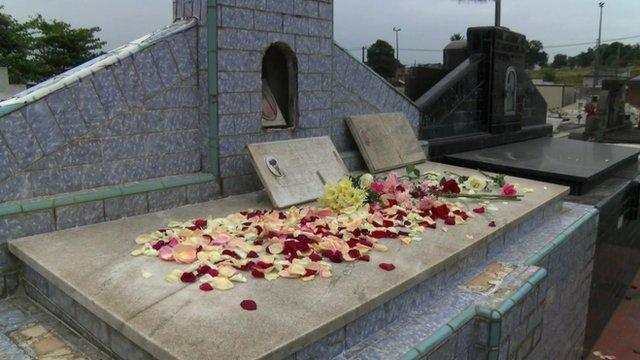
- Published27 August 2014
- Published22 March 2013
